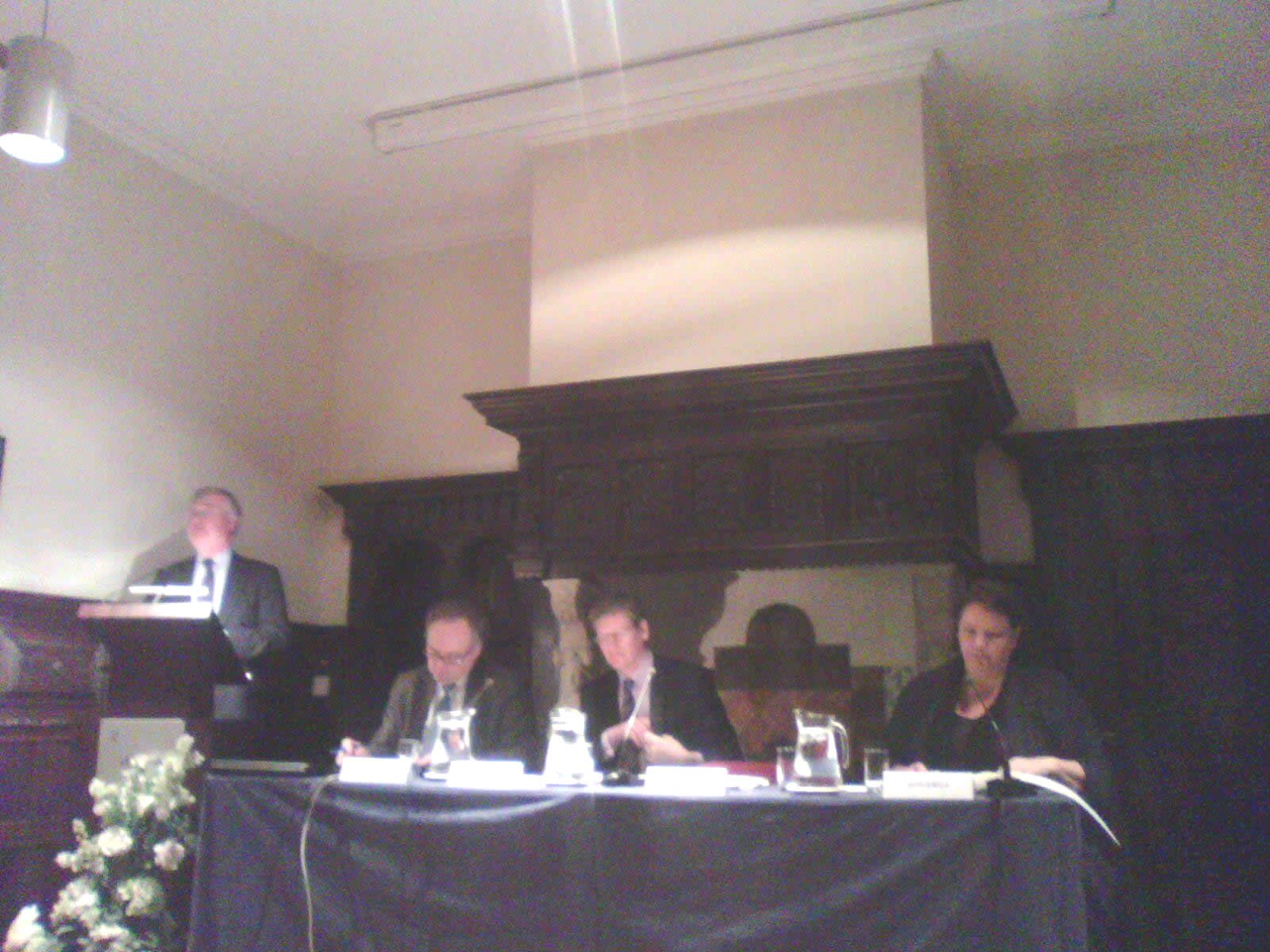|
The economic crisis is changing the EU and its economy in many ways. Representatives of embassies, universities, governments, advisory groups and citizens were present in order to expierence the debate and to give reactions.
More economic governance is urgently wanted. Not to confuse with a centralized economic government. More unity in diversity with certain fundamental rights as social rights and minimum wages. Existence of an European social fund.
Recently Merkel and Sarkozy launched a plan with extreme views in order to get economy back on track. After all, everything that matters is not nowadays isolated anymore, but for the greater part matters are connected to each other as a web. In order to let start a fertile recovery it is of importance to judge the fundamental period by its true merits. Viability, employment has to be protected. EU2020 is focussing on stability and strives after reforms of labourmarket reforms, taxes, pension systems and to stay economical competitive. Looking for balance between flexability for business and security for workers and fair commitment between EU, institutions, commission. We also have to taken into account demographic changes.
What was underestimated was the importance to know what it is to live in a monetary union. There is the need for more European coordination and social security. If we choose to go that direction, we have to exclude conditions, which started the crisis. However, reduction of labour costs is needed and if the people spend we will come out of the crisis.
Contribution from employees point of view:
In reaction on the pact that the European Commission proposes the FNV said that it will become a disaster if Europe soon may intervene in national economies and with that in employment relationships. 'We are familiar with freedom of union and freedom of negotations. We don't want that the government interferes with the development of wages, that's for social partners. But if this continues, the European Commission is allowed to do so!
Plans by Merkel and Sarkozy did not get the support of the Eurotop. But the plans of the European Commission for a 'Pact on power on concurrence' are very explicit too. Through this, substantial questions are present at the largest organisation of employees and arised concerning the democratic quality of the intended decisions by the Commission. Till now, there was in the separate member-states no social or political discussion about this. Besides, the EU-plans points numerous absurdities.
Striving after a labour participation of 75% as in half of Europe extreme austerity is announced, is almost impossible. Many jobs will lost when all governments in Europe are going to economize at the same time. National governments can not invest in skills of employees if at the same time there are stone-hard cuts on education and schooling. And fighting of poverty is in a time of increasing unemployment and severe cuts impossible.
The FNV did suggest proposals to stimulate the economy, to execute an active labour market policy and to divide prosperity in stead of to impose sanctions to countries when they does not carry out European politics. It was mentioned that member states after the Lisbon Treaty was implemented have to react if they don'tagree with EC proposals and a public debate was not carried. How can the EU do this proposals without consulting social partners? We need to have jobs.
Contribution from employers point of view:
To go on with the EU2020 strategy is not a doubt. Enrich and add. Views of the economic council, however, are also predictable, often the same, always the lack of social inclusion, which also touches national authorities. The challenges have not changed the positions. We are still working on an integrated Europe. We have to do something. We cannot do nothing. So, economic governance has to be strengthened. But a question is is it sensible to do it on this way. Europe has just begun.
|
